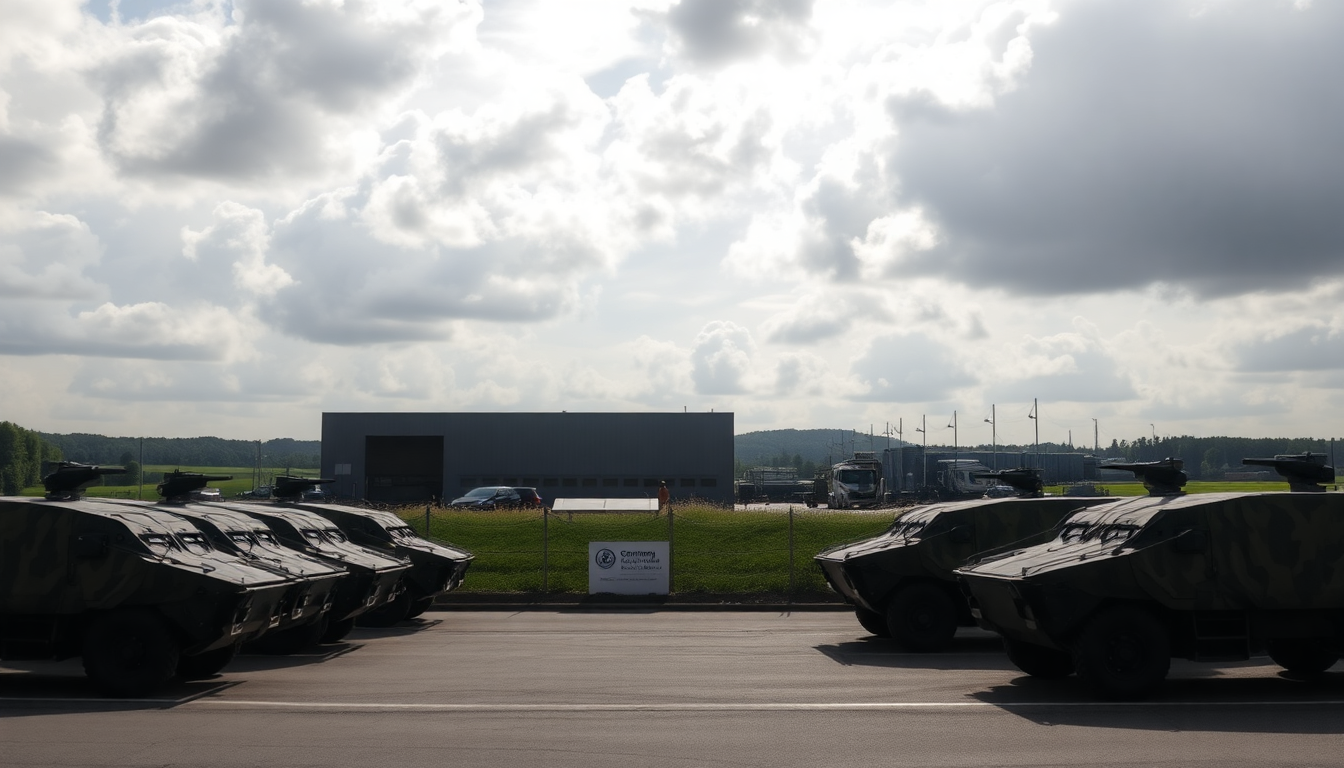Table of Contents
The recent escalation of the conflict in Gaza has prompted Germany to rethink its military export policies. This shift has led to a suspension of all shipments of military equipment that could potentially be used in the region. This decision comes on the heels of the Israeli security cabinet’s approval of a controversial plan aimed at taking control of Gaza City, a move that has sparked international scrutiny and condemnation.
Germany’s Stance on Military Exports
On Friday, Chancellor Friedrich Merz made a significant announcement regarding the suspension, aligning Germany’s foreign policy with the growing humanitarian crisis in Gaza. As military operations intensify under Prime Minister Benjamin Netanyahu’s leadership, Germany is reconsidering its role as a key military supplier to Israel. Merz emphasized that, given the current circumstances, Germany cannot authorize any military exports that might exacerbate the suffering of civilians caught in the conflict.
While Germany has historically supported Israel’s right to self-defense, alarming reports of civilian casualties and a worsening humanitarian situation have pressed German leaders to take action. This decision underscores a growing recognition of the need for accountability in military actions, particularly those impacting innocent civilians. Isn’t it time we all reflect on the real human cost of warfare?
The Humanitarian Crisis in Gaza
The ongoing military operations have wreaked havoc on the civilian population of Gaza. Health authorities report shocking figures, with nearly 200 individuals, including children, succumbing to malnutrition amid severe restrictions on humanitarian aid. The situation is so critical that U.N. assessments are warning of impending famine in the enclave, prompting urgent calls for international intervention.
As conflicts unfold, the humanitarian impact becomes a key consideration in military decisions. Merz’s call for Israel to allow unrestricted access for humanitarian organizations highlights the moral obligation to prioritize civilian wellbeing in conflict zones. The Israeli government’s responsibility should extend beyond military goals to include providing essential services and support to those affected by the conflict. How can we ensure that the needs of the most vulnerable are not overlooked in the chaos of war?
Implications for Israeli Policy
Germany’s suspension of military exports serves as a critical reminder of the political consequences of military support during crises. As the Israeli administration prepares for a significant ground operation, it faces the daunting task of balancing military strategy with humanitarian responsibilities. International observers are watching closely; any further military actions will be under intense scrutiny.
Moreover, the potential annexation of additional territories, such as the West Bank, presents further complications. A recent symbolic measure passed by the Israeli parliament advocating for annexation has raised alarms within the international community. Germany’s stance on military exports may reflect broader concerns about Israel’s long-term strategy in the region and its implications for peace and stability. Can Israel navigate this minefield while still pursuing its security objectives?
Conclusion and Future Outlook
Germany’s decision to halt military exports to Israel represents a significant shift in international relations, especially in light of ongoing conflicts. As military actions continue to escalate, the urgency for a comprehensive, humanitarian-focused approach becomes even more apparent. The international community must push for measures that prioritize civilian protection and uphold the principles of humanitarian law.
Looking ahead, the evolution of this situation remains uncertain. The interplay between military strategy and humanitarian needs will be a defining factor in not only shaping the fate of Gaza but also influencing the broader geopolitical landscape in the region. What steps can be taken to ensure that humanity prevails over conflict?


